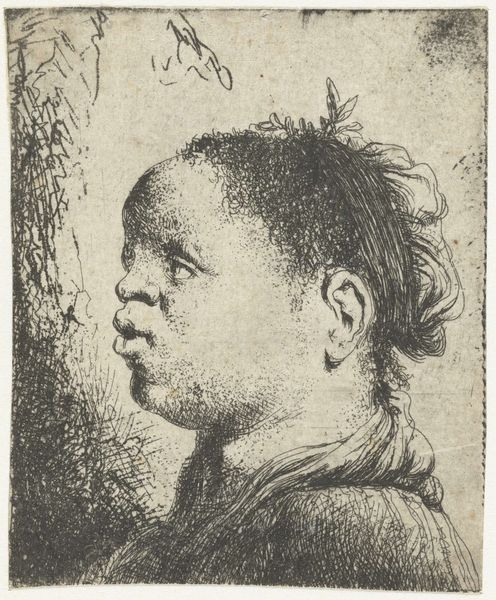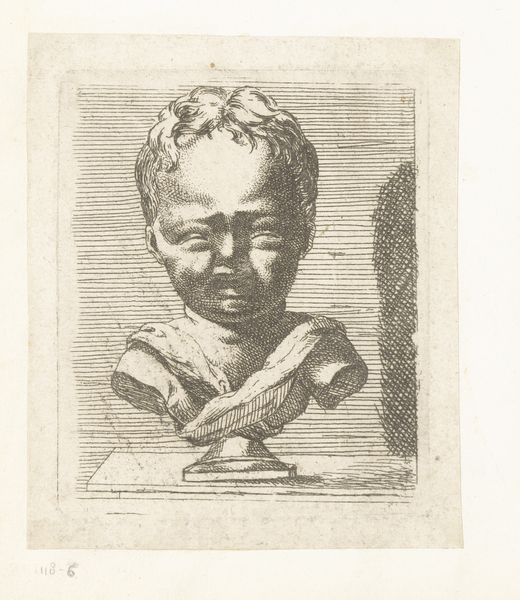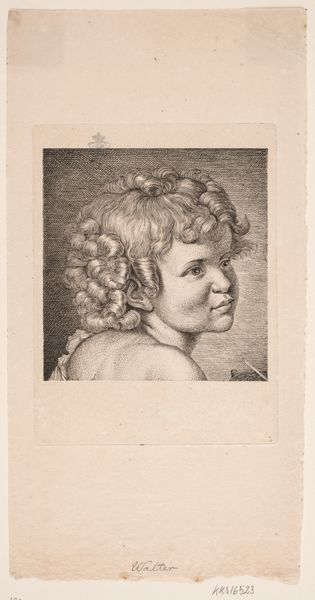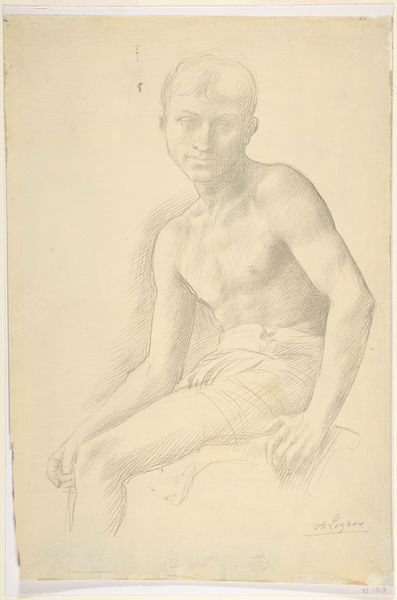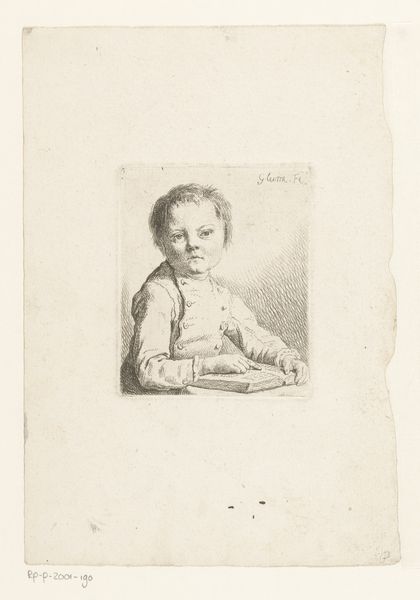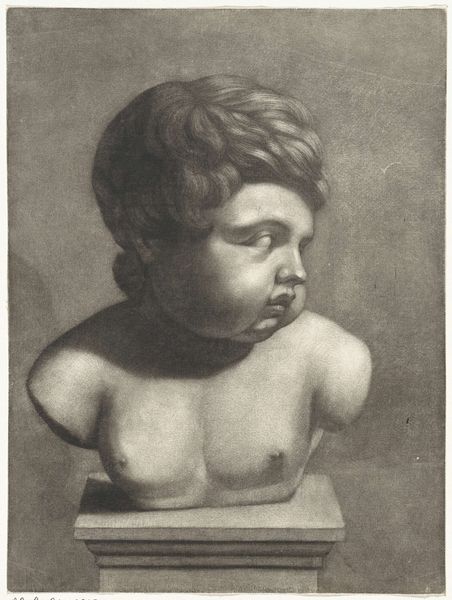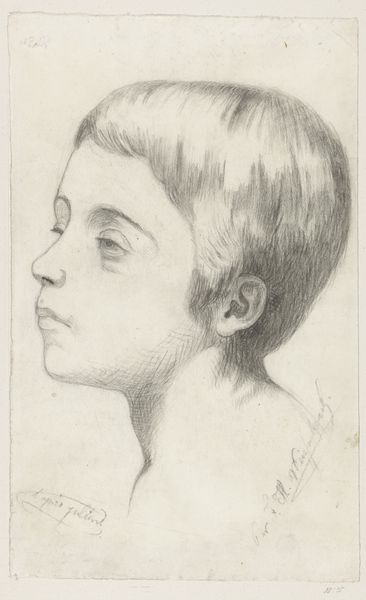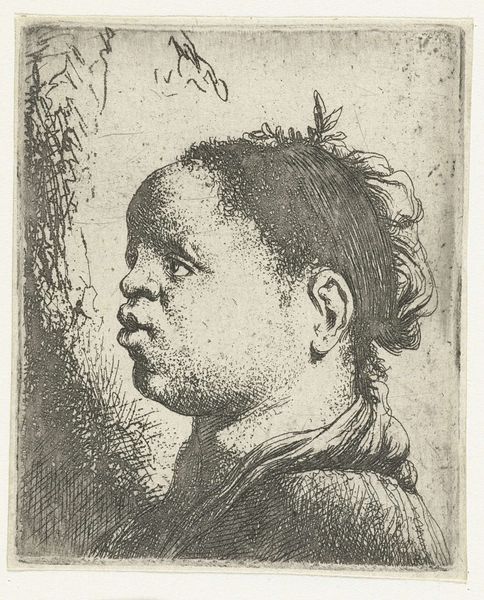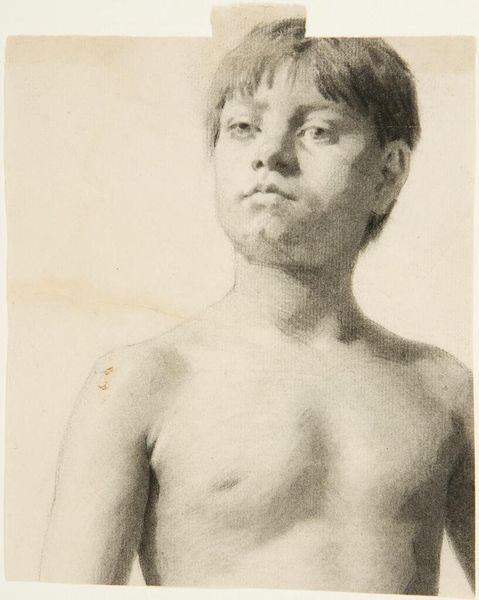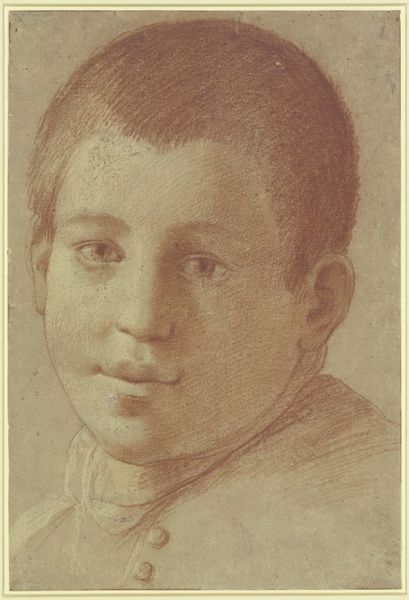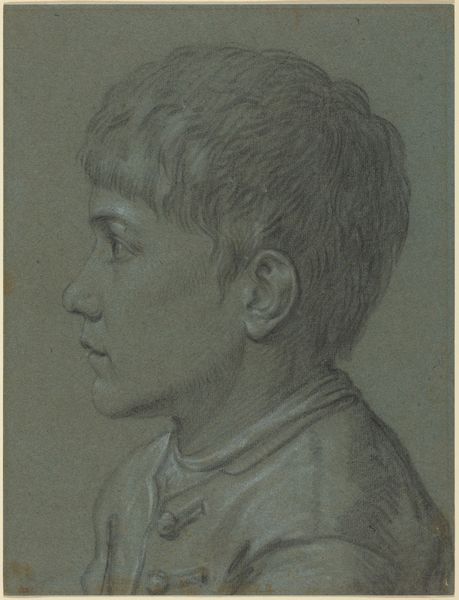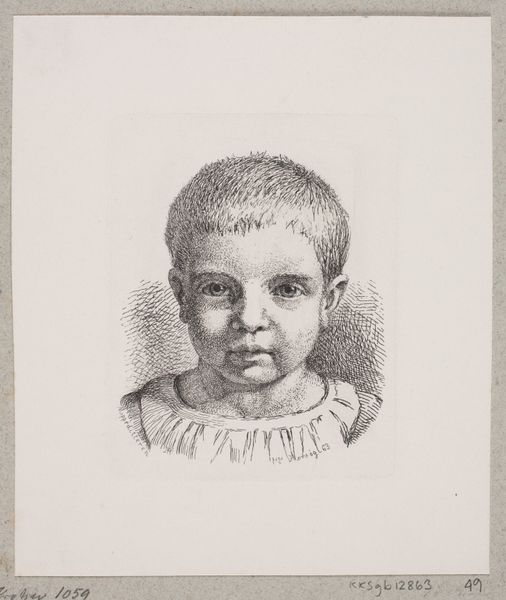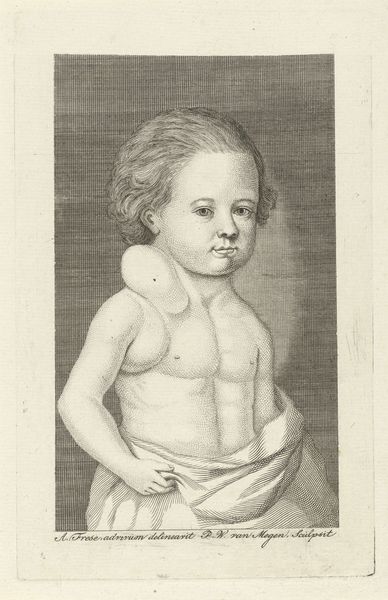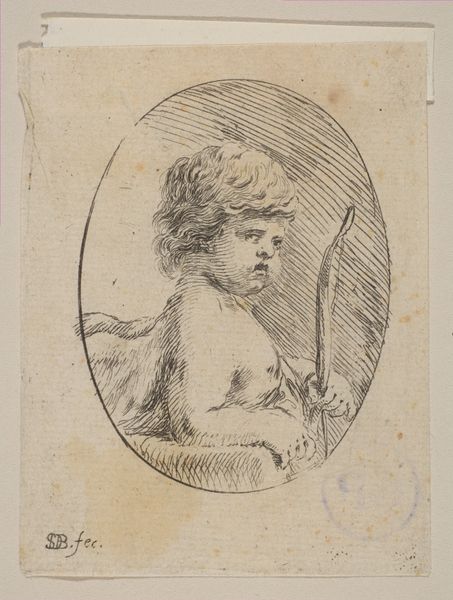
Head and shoulder of a child, in profile to right 1645
0:00
0:00
drawing, print, engraving
#
portrait
#
pencil drawn
#
drawing
# print
#
portrait drawing
#
engraving
Dimensions: 3 3/8 x 2 5/16 in. (8.6 x 5.9 cm)
Copyright: Public Domain
Editor: This is "Head and shoulder of a child, in profile to right," an engraving by Wenceslaus Hollar, created around 1645. It’s so delicately rendered! The child's face seems almost ethereal. I am curious, as an historian, what draws your attention when you look at a portrait like this? Curator: Well, first, consider that Hollar, working in the 17th century, produced these prints often as part of larger visual projects, recording and circulating images, like visual news. The inscription at the top says "Leonardo da Vinci was...", which indicates this isn't necessarily just a portrait of a specific child. Editor: So, it is intended more like a historical artifact of someone that might be compared to Da Vinci? Curator: Precisely. In this social context, engravings weren't just artistic expressions. Think of them as early forms of mass media. How do you see that context reflected in the work itself? Editor: The precision of the lines and the almost clinical way he captures the child’s profile... It feels less about individual expression and more about conveying a type, an idea, maybe even propagating an image of innocence or potential genius that is inspired by the likes of Leonardo da Vinci. Curator: Exactly! The medium itself, the reproducible print, pushes the portrait beyond the realm of personal likeness and into public circulation. We're dealing with the early marketing and distribution of an idea through art. The print also places importance on the institution, for which Hollar produced his work, to promote that Leonardo like creative mind for generations to come. Editor: That's fascinating! I always think of portraits as being so personal, but seeing it as a historical record being disseminated through the printing press and linked to the artistic genius like that of Leonardo really shifts my perspective. Curator: Right. Seeing art within a network of cultural production truly enriches how we can analyze these portraits. Editor: Absolutely. I’ll definitely keep that context in mind moving forward.
Comments
No comments
Be the first to comment and join the conversation on the ultimate creative platform.
